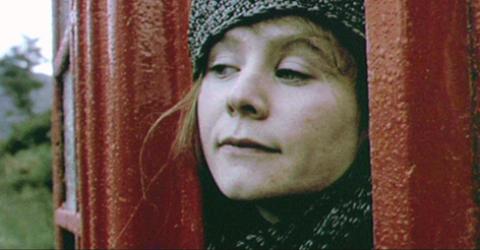Here’s an interview I did for the website Sound Screen.
Yorgos Lanthimos’s film Dogtooth is a startlingly distinctive and darkly comic film about demented authoritarian parents who keep their grown-up children locked up in the house, and continually lie to them to shield them from the outside world. Amongst other awards it won the Un Certain Regard prize at 2009’s Cannes and is courting a lot of praise and attention from critics. Here the director discusses his film in-depth and also talks about the state of the Greek film industry and the irritation of being compared to contemporaries like Michael Haneke.
Where there any real-life events that influenced you to tell this story of Dogtooth?
No not really it just started from an idea you know about the future of families. And what if in the future there were no more families and things like that. I then had the idea of these parents that really [could have] happened at any time, that they would really wanna keep their family together forever. And have them think that their doing the best for their children and raise them far away from the rest of the world but of course that wouldn’t really work. So it just came from that and the real stories we heard later while we were rehearsing, you know we heard about the Austrian [the Josef Fritzl case] story, it was very different from what we were trying to do, it was very dark you know with having dungeons and having children with the daughter. I wanted to do something much more brighter and beautiful in contradiction to what effect this situation would have on the children, and to show that these parents have the best intentions in mind although it doesn’t really work that way.
What I noticed about the film was that it is quite a dark film but there’s also a lot of humour in it, for instance when they tell their kids that their grandfather is Frank Sinatra, when we see the parents making love and they’re wearing headphones listening to music. There’s all these comical moments and I was just wondering if the humour was an important aspect of the film for you?
Yeah it was very important to me but I guess it always is in the things that I do. But I feel that especially in such a story and such a situation you can get into much more deeper and true things approaching it also with a humorous side of things. Because if you get too dramatic and too melodramatic about things or just violent, you just force people to think certain things instead of allowing them to think themselves and to be engaged in different ways. But if you can walk a line between all these things; tragedy and violence but humour as-well and have them laugh at situations, then it’s easier for people to realise what’s going on and to be involved and to be more open about thinking [about] all these situations.



